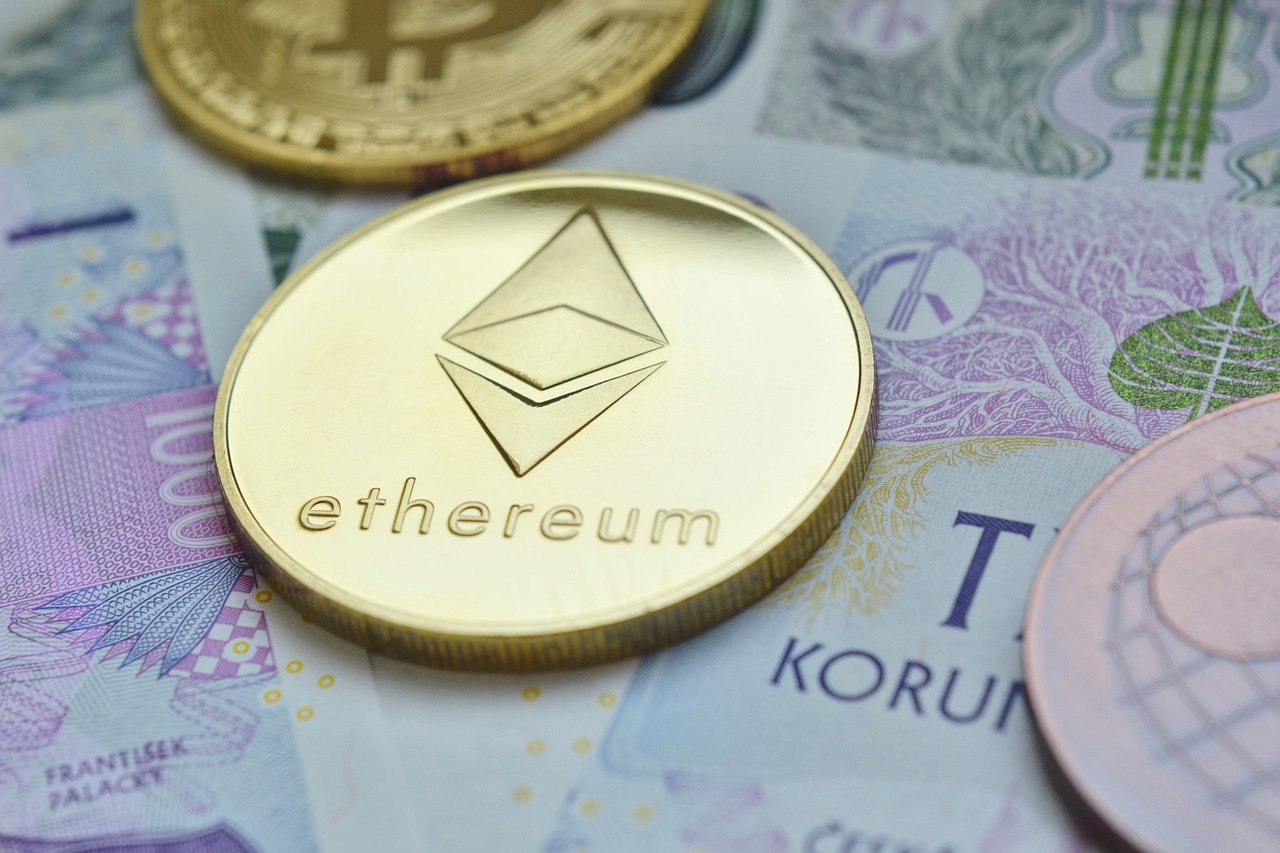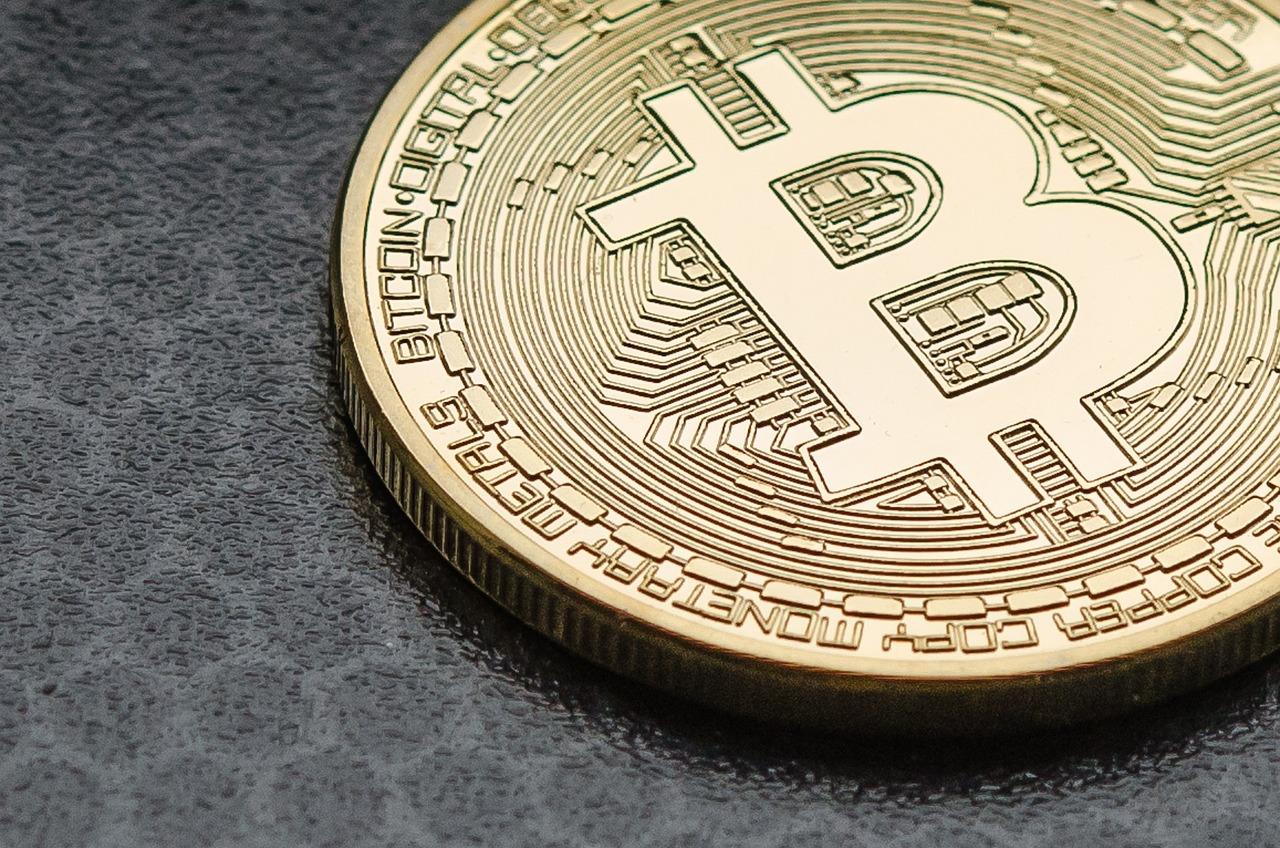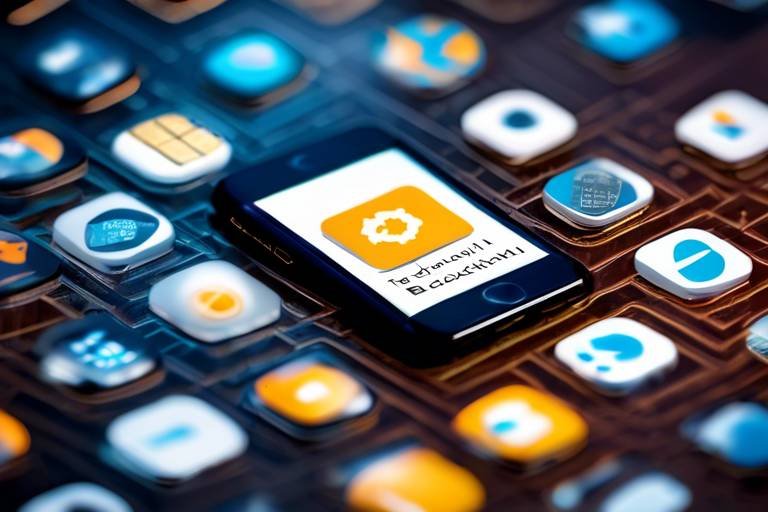How Blockchain is Revolutionizing Loyalty Programs
The world of loyalty programs is undergoing a significant transformation, and at the heart of this change is blockchain technology. Imagine a world where your loyalty points are not just numbers on a screen, but secure, transparent, and easily transferable assets that you can use anywhere, anytime. That’s the promise of blockchain, and it’s not just a pipe dream; it's becoming a reality. As consumers seek more value and businesses strive to build stronger relationships with their customers, blockchain is stepping in to bridge the gap. This article explores how blockchain is reshaping loyalty programs, making them more secure, engaging, and beneficial for both businesses and consumers alike.
Before diving into the specifics of loyalty programs, it’s essential to grasp the foundational principles of blockchain. At its core, blockchain is a decentralized ledger that records transactions across many computers. This means that no single entity has control over the entire database, which leads to increased transparency and security. Each transaction is securely encrypted and linked to the previous one, forming a chain of blocks—hence the name 'blockchain.' This structure makes it nearly impossible to alter any information without consensus from the network, providing a level of trust that traditional systems cannot match. In the context of loyalty programs, these principles can help businesses manage customer data more effectively and foster a deeper sense of trust with their clientele.
So, what makes blockchain such a game-changer for loyalty programs? The advantages are numerous and impactful. For starters, the enhanced security that blockchain offers means that customer data is safeguarded against breaches and fraud. With traditional systems, loyalty points can be easily manipulated or stolen; however, blockchain's immutable ledger significantly reduces these risks. Additionally, customers can have greater control over their data, choosing what to share and with whom, which boosts their trust in the system.
One of the standout features of blockchain is its ability to provide secure and transparent transactions. For customers, this means they can trust that their loyalty points are accurately tracked and safe from tampering. Businesses benefit from this transparency as well; they can demonstrate to their customers that their loyalty points are not only secure but also easily verifiable. This level of trust can lead to stronger customer relationships and increased loyalty.
Fraud is a significant concern in loyalty programs, with many businesses losing money due to fraudulent activities. Blockchain’s immutable ledger acts as a powerful fraud prevention mechanism. Once a transaction is recorded, it cannot be changed or deleted without the consensus of the network. This characteristic makes it extremely difficult for malicious actors to manipulate loyalty points. For example, if a customer tries to redeem points that they didn't earn, the blockchain can easily identify and reject the fraudulent transaction.
Imagine being able to see your loyalty points accumulate in real-time, with instant updates every time you make a purchase. Blockchain technology enables real-time tracking of transactions, providing customers with immediate visibility into their loyalty points. This not only enhances the customer experience but also encourages more frequent engagement with the loyalty program. Customers appreciate knowing exactly where they stand and how close they are to earning rewards, making them more likely to return to the business.
Blockchain technology isn’t just about security; it also fosters deeper customer engagement. By leveraging blockchain, businesses can offer personalized rewards tailored to individual customer preferences. For instance, a coffee shop could analyze a customer's transaction history and offer them a free drink after a certain number of visits, directly through the blockchain. This level of personalization creates a more engaging experience for customers, making them feel valued and understood.
Despite the clear advantages, implementing blockchain in loyalty programs is not without its challenges. Organizations may encounter technological barriers, regulatory compliance issues, and hurdles related to user adoption. Understanding these challenges is crucial for businesses looking to transition to blockchain-based loyalty systems.
Integrating blockchain into existing systems can be a daunting task. Many organizations may face significant technological challenges, such as outdated infrastructure or a lack of skilled personnel. However, with the right planning and investment, these barriers can be overcome. Companies can collaborate with blockchain experts to ensure a smooth transition and maximize the benefits of this technology.
Even if a business successfully implements blockchain technology, getting customers on board can be tricky. Many consumers may not fully understand how blockchain works or why it benefits them. To enhance user understanding and acceptance, businesses should invest in educational initiatives, such as tutorials or workshops, to demystify blockchain and its advantages in loyalty programs.
Looking ahead, the potential for blockchain to redefine loyalty programs is immense. As technology continues to evolve, we can expect to see more dynamic and customer-centric approaches emerge. For instance, the integration of blockchain with other technologies like AI and IoT could lead to even more personalized and engaging customer experiences.
Imagine a future where your smart fridge knows when you're low on milk and automatically redeems your loyalty points for a discount on your next purchase. This is the kind of innovation that could arise from the integration of blockchain with AI and IoT. Businesses will be able to create hyper-personalized experiences that cater to individual customer needs and preferences.
Blockchain could also pave the way for global loyalty networks, allowing customers to earn and redeem points across various platforms seamlessly. Picture this: you earn points at a coffee shop that can be used at a clothing store or an airline. Such a system would not only enhance customer satisfaction but also encourage more spending across different businesses, creating a win-win scenario.
- What is blockchain technology? Blockchain is a decentralized digital ledger that records transactions across multiple computers securely.
- How does blockchain enhance loyalty programs? It increases security, prevents fraud, and allows for real-time tracking of loyalty points.
- What challenges do businesses face when implementing blockchain? Common challenges include technological barriers, regulatory compliance, and user adoption issues.
- Can blockchain integrate with other technologies? Yes, blockchain can work alongside AI and IoT to create more personalized customer experiences.

The Basics of Blockchain Technology
Understanding the foundational principles of blockchain technology is crucial for grasping its application in loyalty programs. At its core, blockchain is a decentralized digital ledger that records transactions across multiple computers in a way that ensures the registered data cannot be altered retroactively. This means that once a transaction is recorded, it is virtually impossible to change or delete it, creating a permanent record. This unique characteristic of immutability is one of the key features that makes blockchain so appealing, especially in sectors like finance and customer loyalty.
Another fundamental aspect of blockchain is its transparency. All participants in the blockchain network can view the entire transaction history, which fosters a sense of trust among users. Imagine a giant, open book where everyone can see the entries made, but only certain people have the keys to add to it. This transparency not only helps in building trust but also ensures accountability among businesses and their customers.
Moreover, decentralization is a game-changer. Unlike traditional databases that are controlled by a single entity, blockchain operates on a peer-to-peer network. This means that no single entity has control over the entire database, reducing the risk of data manipulation and fraud. In a world where data breaches and privacy concerns are rampant, this decentralized model offers a breath of fresh air.
To further illustrate these points, let’s break down some of the key concepts of blockchain technology:
- Decentralization: No central authority controls the data, distributing power among all participants.
- Transparency: All transactions are visible to authorized users, ensuring accountability.
- Immutability: Once a transaction is recorded, it cannot be altered or deleted.
- Security: Cryptographic techniques secure data, making unauthorized access nearly impossible.
These foundational principles of blockchain technology set the stage for its application in loyalty programs. By leveraging these features, businesses can create more secure and engaging customer experiences. The next sections will dive deeper into the specific advantages that blockchain brings to loyalty programs, showing how it can transform the way businesses interact with their customers.

Advantages of Blockchain in Loyalty Programs
When it comes to loyalty programs, the introduction of blockchain technology is nothing short of revolutionary. Imagine a world where your loyalty points are not just numbers on a screen, but tangible assets that you can control and utilize with complete transparency. This is the promise of blockchain, and it brings several significant advantages to the table. First and foremost, blockchain enhances security and minimizes the risk of fraud, which has long plagued traditional loyalty systems. With its decentralized nature, blockchain creates an immutable ledger that records every transaction, making it nearly impossible for malicious actors to manipulate data.
Additionally, the transparency offered by blockchain is a game-changer for customer trust. Customers can see their point accumulation in real-time, which fosters a sense of ownership and engagement. No longer will customers have to wonder if their points were correctly credited or if they were lost in a system glitch. Instead, they can track their rewards seamlessly, knowing that the information is secure and reliable.
Moreover, blockchain facilitates improved customer data management. Companies can gather and analyze customer data more effectively, leading to personalized rewards that cater to individual preferences. This level of personalization is crucial in today's market, as customers increasingly expect tailored experiences. With blockchain, businesses can create loyalty programs that are not only rewarding but also relevant to their customers' needs.
One of the standout features of blockchain in loyalty programs is its ability to provide real-time transaction tracking. Customers can monitor their points and rewards as they earn them, creating a more engaging experience. Imagine receiving instant notifications when you earn points after a purchase or when you redeem them for a reward. This immediacy not only enhances customer satisfaction but also encourages more frequent interactions with the brand.
Furthermore, blockchain opens the door to innovative reward structures. For example, businesses can implement a system where customers can exchange loyalty points across different brands or platforms, creating a more interconnected and versatile loyalty ecosystem. This concept of a shared loyalty network could revolutionize how we think about rewards, allowing customers to maximize their benefits across various affiliations.
In summary, the advantages of blockchain in loyalty programs are profound and multifaceted. From increased security and transparency to enhanced customer engagement and personalized experiences, blockchain technology is set to transform how businesses approach loyalty. As we continue to explore the potential of this technology, it’s clear that the future of loyalty programs will be more dynamic, customer-centric, and rewarding than ever before.
- What is blockchain technology? Blockchain is a decentralized digital ledger that securely records transactions across multiple computers.
- How does blockchain enhance security in loyalty programs? By creating an immutable ledger, blockchain minimizes the risk of fraud and ensures that all transactions are transparent and verifiable.
- Can customers track their loyalty points in real-time? Yes, blockchain allows for real-time transaction tracking, enabling customers to monitor their points and rewards instantly.
- What are the benefits of personalized rewards? Personalized rewards cater to individual preferences, increasing customer satisfaction and loyalty.
- Will blockchain enable cross-brand loyalty programs? Yes, blockchain has the potential to create global loyalty networks that allow points to be earned and redeemed across various platforms.

Increased Security and Transparency
When it comes to loyalty programs, one of the most significant concerns for businesses and customers alike is security. With traditional systems, data breaches and fraud can lead to a loss of trust, which is something no company wants. This is where blockchain technology steps in, acting as a superhero in the digital world. Imagine a vault that not only keeps your valuables safe but also allows you to see exactly who accessed it and when. This is the essence of blockchain—providing a secure and transparent environment for transactions.
Blockchain operates on a decentralized network, meaning that no single entity has control over the entire system. This decentralization makes it incredibly difficult for hackers to manipulate or alter transaction records. Each transaction is recorded on a block, and once that block is filled, it is added to the chain of previous blocks—hence the name "blockchain." This process ensures that every transaction is time-stamped and immutable, meaning it cannot be changed or deleted. The result? A secure ledger that builds trust between businesses and consumers.
Transparency is another cornerstone of blockchain technology. Customers can view their loyalty points and transaction history in real-time, which eliminates the confusion often associated with traditional loyalty programs. No more wondering whether that last purchase earned you points or if they mysteriously vanished. With blockchain, every point earned is visible and verifiable. This level of transparency fosters a sense of ownership and engagement among customers, as they can track their rewards and understand how they accumulate them.
Let's break down some key benefits of increased security and transparency in loyalty programs:
- Trust Building: When customers know their data is safe, they are more likely to engage with the program.
- Reduced Fraud: The immutable nature of blockchain records makes it nearly impossible for fraudulent activities to go unnoticed.
- Instant Verification: Customers can instantly verify their points and rewards without needing to contact customer service.
In essence, the increased security and transparency offered by blockchain technology are not just buzzwords; they represent a fundamental shift in how loyalty programs operate. By embracing these features, businesses can create a more trustworthy and engaging environment for their customers, leading to increased loyalty and satisfaction.
Q1: What is blockchain technology?
A1: Blockchain is a decentralized digital ledger that records transactions across many computers in a way that the registered transactions cannot be altered retroactively. This ensures security and transparency.
Q2: How does blockchain improve loyalty programs?
A2: It enhances security, reduces fraud, and provides real-time transparency for customers, allowing them to track their rewards easily and securely.
Q3: Are there any downsides to using blockchain in loyalty programs?
A3: Yes, challenges include technological barriers, regulatory compliance issues, and the need for user education to encourage adoption.

Fraud Prevention Mechanisms
In the world of loyalty programs, fraud is a persistent threat that can erode trust and diminish the value of customer engagement. However, blockchain technology introduces a game-changing solution to this problem through its immutable ledger and decentralized nature. By ensuring that all transactions are recorded in a way that cannot be altered retroactively, blockchain creates a digital environment where fraudulent activities become exceedingly difficult.
One of the standout features of blockchain is its transparency. Every transaction is visible to all parties involved, which means that any attempt to manipulate data can be easily detected. This transparency not only acts as a deterrent for fraudsters but also empowers businesses to monitor their loyalty programs with a keen eye. Imagine a scenario where each point earned is instantly recorded on a public ledger, making it almost impossible for anyone to double-spend or falsely inflate their loyalty points.
Moreover, blockchain employs sophisticated cryptographic techniques to secure transactions. Each entry in a blockchain is encrypted, and only authorized users can access specific data, ensuring that sensitive information remains protected. This level of security is crucial for loyalty programs, where customer data and transaction history are often prime targets for cybercriminals. By leveraging these cryptographic measures, businesses can significantly reduce the risk of data breaches and fraud.
Another effective fraud prevention mechanism offered by blockchain is smart contracts. These self-executing contracts automatically enforce the terms of an agreement when certain conditions are met. For example, a loyalty program could automatically issue points to a customer once they complete a qualifying purchase. This automation minimizes human error and the potential for fraudulent claims, as the system operates on predefined rules and conditions that are transparent and verifiable.
To summarize, the integration of blockchain technology into loyalty programs provides a robust framework for fraud prevention. Here are some key mechanisms:
- Immutable Ledger: Prevents alteration of transaction records.
- Transparency: Allows for real-time monitoring and detection of fraudulent activities.
- Cryptographic Security: Protects sensitive data from unauthorized access.
- Smart Contracts: Automates processes to reduce human error and fraud risk.
As businesses continue to explore the potential of blockchain, they can rest assured that these fraud prevention mechanisms not only enhance security but also foster a sense of trust among customers, ultimately leading to stronger loyalty and engagement.
- What is blockchain technology? Blockchain is a decentralized digital ledger that securely records transactions across multiple computers.
- How does blockchain prevent fraud in loyalty programs? Its immutable nature and transparency make it difficult for fraudulent activities to occur.
- What are smart contracts? Smart contracts are self-executing contracts with the terms directly written into code, automating processes and reducing the chance of fraud.
- Can blockchain be integrated with existing loyalty programs? Yes, many businesses are exploring ways to integrate blockchain to enhance their loyalty offerings.

Real-Time Transaction Tracking
Imagine a world where every time you earn or redeem loyalty points, you can see it happening in real-time, right before your eyes. Blockchain technology makes this possible by providing a transparent and immutable ledger that records every transaction instantly. This means that whether you're earning points for a purchase or redeeming them for rewards, you can track these actions as they occur, eliminating any uncertainty or confusion.
In traditional loyalty programs, customers often face delays in point updates, leading to frustration and a lack of trust. With blockchain, every transaction is recorded on a decentralized network, ensuring that all parties involved have access to the same information simultaneously. This real-time tracking not only enhances the customer experience but also builds a stronger relationship between businesses and consumers. When customers can see their points accumulate immediately, they feel more engaged and valued.
Furthermore, real-time transaction tracking allows businesses to analyze customer behavior more effectively. By observing how and when customers earn or redeem points, companies can tailor their marketing strategies and reward offerings to better meet customer needs. This data-driven approach can lead to more personalized experiences, ultimately boosting customer satisfaction and loyalty.
To illustrate the impact of real-time transaction tracking, consider the following table that compares traditional loyalty programs with blockchain-based systems:
| Feature | Traditional Loyalty Programs | Blockchain-Based Loyalty Programs |
|---|---|---|
| Transaction Updates | Delayed (often 24-48 hours) | Instantaneous |
| Transparency | Limited visibility | Full visibility for all parties |
| Fraud Risk | Higher risk of manipulation | Significantly reduced |
| Customer Engagement | Passive | Active and dynamic |
As you can see, the advantages of real-time transaction tracking in loyalty programs are substantial. Not only does it enhance security and transparency, but it also fosters a sense of trust and engagement that is often lacking in traditional systems. Imagine walking into your favorite store and knowing that every purchase you make is instantly reflected in your loyalty account. That's the kind of experience blockchain can deliver, making customers feel more connected to the brands they love.
In conclusion, real-time transaction tracking is a game changer for loyalty programs. It empowers customers with immediate access to their rewards status, fosters trust through transparency, and enables businesses to create more engaging and personalized experiences. As blockchain technology continues to evolve, we can expect to see even more innovative applications that will redefine how loyalty programs operate.

Enhanced Customer Engagement
In the ever-evolving landscape of consumer-brand relationships, has become a pivotal focus for businesses aiming to cultivate loyalty. With the advent of blockchain technology, companies are discovering innovative ways to foster deeper connections with their customers. Imagine a world where your loyalty points aren't just numbers in an app but a vibrant part of your shopping experience. Blockchain paves the way for this transformation by enabling personalized rewards that resonate with individual preferences.
One of the most exciting aspects of blockchain is its capacity to create a more interactive and rewarding experience for customers. By utilizing smart contracts, businesses can automatically tailor rewards based on customer behavior. For instance, a coffee shop might offer a free drink after a certain number of purchases, but with blockchain, it could also provide personalized offers based on your favorite flavors or previous purchases. This level of customization not only enhances customer satisfaction but also drives repeat business.
Moreover, blockchain allows for seamless interactions between brands and consumers. Imagine walking into your favorite store, and as you enter, your loyalty app recognizes you and presents tailored offers based on your shopping history. This is not just a dream; it’s a tangible possibility with blockchain. The technology enables real-time data sharing, which means businesses can engage customers at the right moment with the right message, making every interaction feel personal and relevant.
Another significant advantage of blockchain in enhancing customer engagement is its ability to facilitate community-building. Brands can create loyalty programs that not only reward purchases but also encourage customers to participate in community events or social media challenges. For example, a fitness brand could reward customers for sharing their workout achievements on social media, creating a sense of community and shared goals among users. This not only boosts engagement but also builds a loyal customer base that feels connected to the brand.
In a nutshell, blockchain is not just a technological advancement; it's a game-changer for customer engagement strategies. By harnessing the power of this technology, businesses can create an ecosystem where customers feel valued, understood, and engaged like never before. The future of loyalty programs is bright, and it’s all about creating meaningful connections that transcend transactions.

Challenges in Implementing Blockchain
While the potential of blockchain technology in loyalty programs is undeniably exciting, it doesn't come without its share of challenges. Organizations looking to implement blockchain face a myriad of hurdles that can complicate the integration process. Firstly, technological barriers present a significant obstacle. Many businesses operate on legacy systems that may not easily accommodate the decentralized nature of blockchain. This can lead to compatibility issues, requiring substantial investment in new infrastructure or software solutions. Moreover, the complexity of blockchain technology itself can be daunting. Organizations must ensure that their teams are adequately trained and equipped to manage this new system.
In addition to technological challenges, there are also regulatory compliance issues to consider. The legal landscape surrounding blockchain is still evolving, and companies must navigate a patchwork of regulations that vary by country and region. This uncertainty can lead to hesitance in adopting blockchain solutions, as businesses worry about potential legal repercussions or the risk of non-compliance. Furthermore, the decentralized nature of blockchain can complicate accountability, making it difficult to determine who is responsible in the event of a dispute or error.
Lastly, user adoption remains a critical challenge. Convincing customers to switch to a blockchain-based loyalty program can be an uphill battle. Many consumers are still unfamiliar with blockchain technology, which can breed skepticism. To overcome this, businesses need to focus on education and communication. Clear messaging about the benefits of blockchain, such as enhanced security and transparency, can help demystify the technology for users. Additionally, implementing user-friendly interfaces and providing incentives for early adopters can encourage participation.
In summary, while blockchain holds tremendous promise for revolutionizing loyalty programs, organizations must carefully navigate the associated challenges. By addressing technological barriers, regulatory concerns, and user adoption issues, businesses can position themselves to take full advantage of the benefits that blockchain has to offer.
- What are the main challenges of implementing blockchain in loyalty programs?
The main challenges include technological barriers, regulatory compliance, and user adoption issues. - How can businesses overcome technological barriers?
Businesses can invest in new infrastructure and ensure their teams receive adequate training. - Why is user adoption a challenge?
Many consumers are unfamiliar with blockchain technology, leading to skepticism and reluctance to switch. - What steps can businesses take to enhance user adoption?
Clear communication about the benefits of blockchain and user-friendly interfaces can help encourage participation.

Technological Barriers
Implementing blockchain technology within loyalty programs is not as simple as flipping a switch; it comes with a unique set of that organizations must navigate. One of the most significant challenges is the integration of blockchain with existing systems. Many businesses have legacy systems that are not designed to interact with blockchain technology. This can lead to compatibility issues, requiring substantial investments in new infrastructure or adaptations to current systems. Imagine trying to fit a square peg into a round hole—this is often how companies feel when attempting to merge old technology with new.
Moreover, the complexity of blockchain technology itself can be daunting. Understanding how blockchain works, including concepts like smart contracts and consensus mechanisms, can be a steep learning curve for many organizations. Employees need to be trained, and this training takes time and resources. Without a clear understanding of how blockchain operates, companies risk implementing solutions that do not meet their needs or, worse, fail entirely.
In addition to these integration and understanding issues, there are also concerns regarding scalability. While blockchain offers secure and transparent transactions, it can struggle to handle high volumes of transactions simultaneously. This is particularly relevant for loyalty programs that experience spikes in activity, such as during holiday sales or promotional events. If the system cannot scale effectively, it may lead to delays and a poor customer experience, which is the opposite of what loyalty programs aim to achieve.
To tackle these technological barriers, organizations can consider several strategies:
- Investing in Training: Providing comprehensive training for employees on blockchain technology can demystify the process and foster a culture of innovation.
- Phased Implementation: Gradually integrating blockchain into existing systems can help mitigate risks and allow for adjustments based on initial feedback.
- Partnering with Experts: Collaborating with blockchain technology experts can provide valuable insights and support during the implementation phase.
Ultimately, while the journey to integrating blockchain into loyalty programs may be fraught with challenges, the potential rewards—enhanced security, improved customer engagement, and streamlined operations—are well worth the effort. The key is to approach these barriers with a strategic mindset, ensuring that the transition to blockchain is as smooth and beneficial as possible.
Q: What are the main technological barriers to implementing blockchain in loyalty programs?
A: The primary barriers include integration with existing systems, the complexity of blockchain technology, and scalability issues during high transaction volumes.
Q: How can organizations overcome these technological challenges?
A: Organizations can invest in employee training, implement blockchain in phases, and partner with technology experts to facilitate a smoother transition.
Q: Why is scalability a concern for loyalty programs using blockchain?
A: Scalability is crucial because loyalty programs may experience spikes in activity, and if the blockchain system cannot handle this volume, it could lead to delays and a negative customer experience.

User Adoption Issues
User adoption is one of the most significant hurdles for businesses looking to implement blockchain technology in their loyalty programs. While the potential benefits are vast, the reality is that customers often feel hesitant to embrace new technologies, especially when it comes to something as personal as their loyalty rewards. Why is that? Well, it boils down to a few key factors that can create barriers to entry.
First off, there’s the knowledge gap. Many consumers are still unfamiliar with blockchain technology, and this lack of understanding can lead to skepticism. If customers don’t grasp how blockchain works or why it’s beneficial, they’re less likely to engage with loyalty programs that utilize it. To tackle this issue, businesses must invest in educational initiatives that explain blockchain in simple terms. Imagine a world where your loyalty points are not just numbers on a screen but secure, easily transferable assets—once customers understand this, their hesitation may begin to fade.
Another critical aspect to consider is the perceived complexity of blockchain systems. If a loyalty program is seen as complicated to use, customers might shy away from participating. For example, if redeeming points requires navigating a convoluted interface or understanding complex processes, users will likely opt for more straightforward alternatives. To overcome this, companies should prioritize user-friendly interfaces and streamlined processes that make participation as effortless as possible.
Furthermore, trust issues can also play a significant role in user adoption. Even though blockchain is designed to enhance security and transparency, some consumers may still harbor doubts about how their data is being used or stored. This is particularly relevant in an age where data breaches are unfortunately common. To build trust, businesses must be transparent about their data policies and demonstrate how blockchain safeguards customer information. Regular communication and updates can help reassure customers that their loyalty points are in safe hands.
Lastly, businesses should consider the incentive structure of their loyalty programs. If customers feel that the rewards offered through blockchain-based systems are not compelling enough compared to traditional programs, they may not see the value in making the switch. Companies need to create attractive, personalized rewards that resonate with their target audience. For instance, offering exclusive discounts, unique experiences, or even the ability to exchange points for cryptocurrencies could enhance the appeal of blockchain loyalty programs.
In summary, while the transition to blockchain-based loyalty programs presents substantial benefits, user adoption issues must be addressed head-on. By educating customers, simplifying processes, building trust, and offering compelling incentives, businesses can pave the way for a smoother transition into this innovative technology.
- What is blockchain technology? Blockchain is a decentralized digital ledger that records transactions across multiple computers securely and transparently.
- How can blockchain improve loyalty programs? Blockchain enhances security, reduces fraud, and allows for real-time tracking of loyalty points, thereby improving customer experience.
- What are the challenges in implementing blockchain? Challenges include technological barriers, regulatory compliance, and user adoption issues.
- Will customers trust blockchain-based loyalty programs? Trust can be built through transparency about data usage and by demonstrating the security features of blockchain.

The Future of Loyalty Programs with Blockchain
As we gaze into the crystal ball of customer loyalty, one thing is crystal clear: blockchain technology is poised to revolutionize the way we think about loyalty programs. Imagine a world where your loyalty points are not just confined to a single brand but can be seamlessly transferred and redeemed across multiple platforms. This is the future that blockchain promises, creating a more interconnected and rewarding experience for consumers.
One of the most exciting prospects is the potential for global loyalty networks. Picture this: you earn points at your favorite coffee shop, and instead of being tied to that one business, those points could be used for discounts at a nearby restaurant or even towards your next flight. This interconnected system could foster greater customer loyalty, as shoppers would be incentivized to engage with brands that are part of a larger ecosystem. Such a shift would not only benefit consumers but also businesses, as they could attract new customers through collaborations and partnerships.
Moreover, the integration of blockchain with other emerging technologies like Artificial Intelligence (AI) and the Internet of Things (IoT) could create a personalized customer experience like never before. Imagine AI algorithms analyzing your purchasing habits and suggesting rewards that are tailored specifically to your preferences. Meanwhile, IoT devices could track your interactions with various brands, automatically updating your loyalty points in real-time. This synergy would not only streamline the process but also make it incredibly engaging for customers.
However, with great power comes great responsibility. As businesses move towards implementing blockchain in their loyalty programs, they must also consider the challenges that come with it. For instance, ensuring the security of customer data and maintaining user privacy will be paramount. The decentralized nature of blockchain is a double-edged sword; while it enhances security, it also requires robust protocols to protect sensitive information.
In conclusion, the future of loyalty programs with blockchain is not just about technology; it's about creating a more dynamic and customer-centric approach. As we continue to explore these innovations, businesses that embrace blockchain will likely find themselves at the forefront of a loyalty revolution, offering customers a level of engagement and rewards that was once thought impossible.
- What is blockchain technology? Blockchain is a decentralized digital ledger that records transactions across many computers, ensuring that the record cannot be altered retroactively.
- How can blockchain improve loyalty programs? Blockchain enhances security, transparency, and the ability to transfer loyalty points across different platforms, creating a more interconnected experience.
- What challenges do businesses face when implementing blockchain? Businesses may encounter technological barriers, regulatory compliance issues, and difficulties in user adoption.
- Will blockchain eliminate fraud in loyalty programs? While blockchain significantly reduces the risk of fraud due to its immutable ledger, it cannot completely eliminate it. Businesses must still implement additional security measures.
- How can I benefit from blockchain-based loyalty programs? Customers can enjoy more flexible and rewarding experiences, including the ability to earn and redeem points across multiple brands and platforms.

Integration with Other Technologies
As we look towards the future, the integration of blockchain technology with other advanced technologies like Artificial Intelligence (AI) and the Internet of Things (IoT) is poised to create a seismic shift in loyalty programs. Imagine a world where your loyalty points are not just numbers in an app, but dynamic assets that react to your behavior and preferences in real time. This is not just a dream; it's becoming a reality thanks to blockchain's ability to securely and transparently manage data.
For instance, when blockchain is combined with AI, businesses can analyze customer data more effectively. This synergy allows for the creation of hyper-personalized rewards that resonate with individual consumers. Instead of generic offers, customers might receive tailored promotions based on their shopping habits, preferences, and even social media interactions. This level of personalization can significantly enhance customer satisfaction and loyalty, as customers feel that brands truly understand their needs.
Moreover, integrating blockchain with IoT devices can streamline the way customers earn and redeem loyalty points. Imagine a smart refrigerator that tracks your grocery purchases and automatically adds loyalty points to your account every time you buy from a participating store. This seamless interaction between devices and loyalty programs not only makes the experience more convenient but also encourages more frequent engagement with brands.
To illustrate the potential of these integrations, consider the following table that outlines the benefits of combining blockchain with AI and IoT:
| Technology | Benefits |
|---|---|
| Blockchain + AI |
|
| Blockchain + IoT |
|
In conclusion, the integration of blockchain with AI and IoT holds immense potential for the evolution of loyalty programs. By harnessing these technologies, businesses can create more engaging, personalized, and efficient loyalty experiences. As we continue to embrace these technological advancements, the future of loyalty programs looks not only promising but also incredibly exciting.
- What is blockchain technology?
Blockchain is a decentralized digital ledger that securely records transactions across multiple computers, ensuring that the data cannot be altered retroactively.
- How does blockchain improve loyalty programs?
Blockchain enhances loyalty programs by providing increased security, transparency, and real-time tracking of transactions, which helps build trust between businesses and consumers.
- What are the challenges of implementing blockchain in loyalty programs?
Challenges include technological barriers, regulatory compliance, and user adoption issues that businesses must navigate during implementation.
- How can AI and IoT enhance loyalty programs with blockchain?
AI can analyze customer data for personalized rewards, while IoT can automate loyalty point accumulation through connected devices, creating a seamless customer experience.

Potential for Global Loyalty Networks
The concept of global loyalty networks is not just an exciting prospect; it is a revolutionary shift in how businesses and consumers interact. Imagine a world where your loyalty points are not confined to a single brand or retailer but can be earned and redeemed across multiple platforms, creating a seamless and interconnected experience. This is the essence of what blockchain technology can offer, breaking down the traditional barriers that have long existed in loyalty programs.
With blockchain, companies can collaborate to create a unified loyalty ecosystem. This means that every time you shop at one participating retailer, you could earn points that are valuable at another, completely unrelated store. This interconnectedness enhances the customer experience, making it more rewarding and engaging. For instance, if you earn points from a coffee shop, you could use those points for discounts at a local clothing store, thus enhancing your shopping experience and encouraging brand loyalty.
But how does this work? The beauty of blockchain lies in its decentralized ledger, which securely records every transaction, ensuring that points are accurately tracked and verified. This transparency not only builds trust among consumers but also simplifies the process of point redemption. Customers can view their accumulated points in real-time and understand exactly how they can be used across various platforms. This eliminates the frustration often associated with loyalty programs, where points can expire or become difficult to redeem.
Moreover, global loyalty networks can lead to increased customer engagement. When customers know that their loyalty points have broader applications, they are more likely to participate actively. This engagement can be further enhanced through personalized rewards tailored to individual preferences, thanks to the data insights that blockchain can provide. Businesses can analyze customer behavior across different platforms and offer rewards that resonate with their interests, making the experience more meaningful.
However, the potential for global loyalty networks isn't just about benefits for consumers; it also offers significant advantages for businesses. By participating in a shared loyalty program, companies can tap into each other's customer bases, expanding their reach and enhancing their brand visibility. This collaboration can lead to increased sales and customer acquisition, as consumers are more likely to try new brands if they can leverage their existing loyalty points.
While the idea of global loyalty networks is promising, it is essential to recognize the challenges that come with it. Issues such as data privacy and regulatory compliance must be addressed to ensure that customer information is protected while still allowing for the sharing of loyalty data across different platforms. Additionally, businesses need to invest in the necessary technology and infrastructure to support such networks, which could pose a barrier to entry for smaller companies.
In conclusion, the potential for global loyalty networks powered by blockchain technology is vast and exciting. By fostering collaboration between brands and creating a more engaging experience for customers, these networks can redefine loyalty programs as we know them. As we move forward, it will be fascinating to see how businesses adapt and innovate in this new landscape, ultimately benefiting both consumers and companies alike.
- What are global loyalty networks?
Global loyalty networks are systems that allow customers to earn and redeem loyalty points across multiple brands and retailers, creating a more interconnected shopping experience. - How does blockchain improve loyalty programs?
Blockchain enhances loyalty programs by providing secure, transparent, and real-time tracking of loyalty points, reducing fraud and improving customer trust. - What challenges do businesses face when implementing blockchain in loyalty programs?
Challenges include technological barriers, regulatory compliance, and user adoption issues, which can complicate the integration of blockchain into existing systems.
Frequently Asked Questions
- What is blockchain technology?
Blockchain technology is a decentralized digital ledger that records transactions across many computers in such a way that the registered transactions cannot be altered retroactively. This ensures transparency and security, making it an ideal solution for various applications, including loyalty programs.
- How does blockchain enhance loyalty programs?
Blockchain enhances loyalty programs by providing increased security, transparency, and real-time transaction tracking. Customers can trust that their loyalty points are safe and accurately recorded, which improves their overall experience and engagement with the brand.
- What are the benefits of using blockchain for loyalty programs?
Some key benefits include reduced fraud, improved customer data management, and the ability to create personalized rewards. This not only helps businesses build stronger relationships with their customers but also encourages repeat purchases.
- What challenges do businesses face when implementing blockchain?
Businesses may encounter technological barriers, regulatory compliance issues, and user adoption challenges. Overcoming these hurdles is essential for successfully integrating blockchain into existing loyalty programs.
- How can businesses encourage user adoption of blockchain-based loyalty programs?
To enhance user adoption, businesses can provide clear education on how blockchain works, showcase its benefits, and offer incentives for customers who participate. Making the experience seamless and user-friendly is also crucial.
- What does the future hold for loyalty programs using blockchain?
The future of loyalty programs may see greater integration with technologies like AI and IoT, leading to even more personalized customer experiences. Additionally, the potential for global loyalty networks could allow customers to earn and redeem points across various platforms seamlessly.
- Can blockchain prevent fraud in loyalty programs?
Yes, blockchain's immutable ledger significantly reduces the risk of fraud by ensuring that all transactions are securely recorded and cannot be altered. This builds trust between businesses and consumers, making loyalty programs more reliable.



















